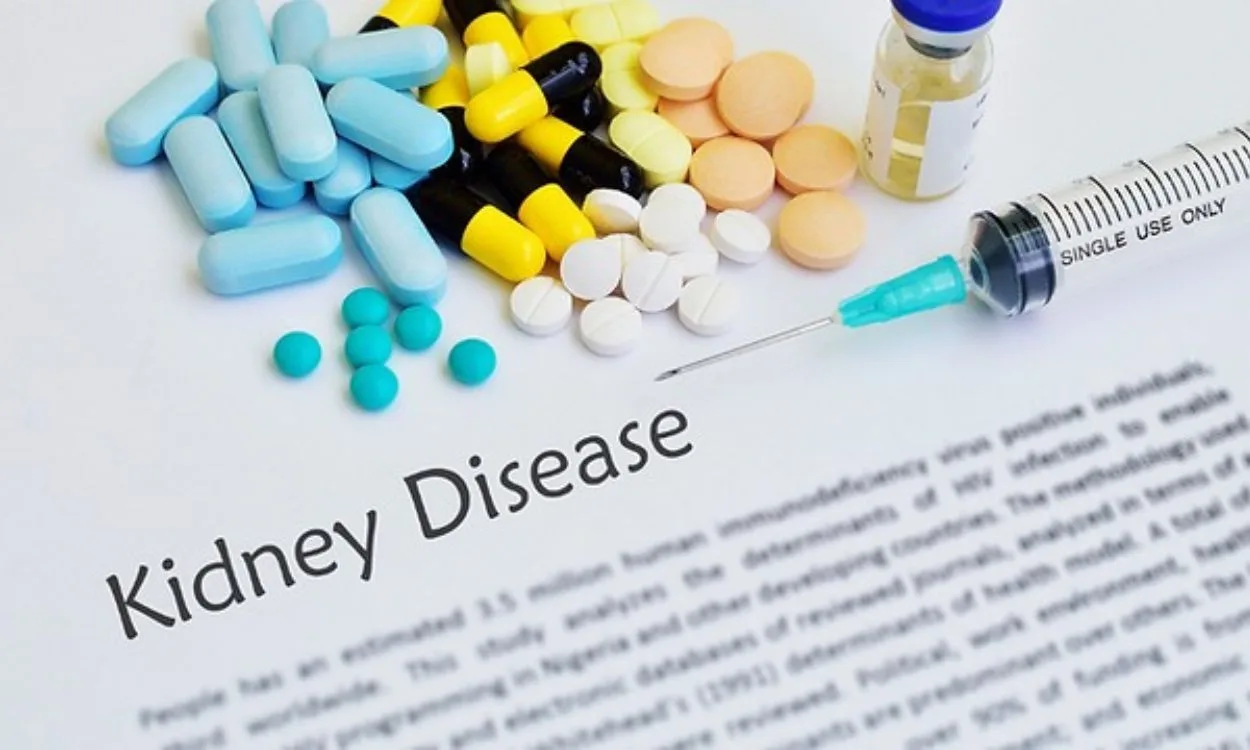Can Certain Medications Affect Kidney Function?
Have you ever wondered if the medications you take can have an impact on your kidney health? The answer is yes, certain medications can indeed affect kidney function. The kidneys play a vital role in filtering waste products and toxins from the blood, maintaining electrolyte balance, and regulating fluid levels in the body. However, some medications can interfere with these functions and potentially cause harm to the kidneys. In this article, we will explore the relationship between medications and kidney function, highlighting the importance of being aware of the potential risks and taking necessary precautions.
How Medications Can Affect the Kidneys
- Direct Toxicity: Some medications have inherent properties that can cause direct damage to the kidneys. These drugs are known as nephrotoxic medications. Examples include certain antibiotics (such as aminoglycosides and vancomycin), nonsteroidal anti-inflammatory drugs (NSAIDs), certain chemotherapy drugs, and contrast agents used in imaging procedures.
- Altered Blood Flow: Certain medications can affect blood flow to the kidneys, thereby compromising their function. Medications that can constrict blood vessels, such as nonsteroidal anti-inflammatory drugs (NSAIDs), decongestants, and some blood pressure medications, can reduce blood flow to the kidneys and potentially impair their ability to filter waste products effectively.
- Disrupted Electrolyte Balance: Some medications can disrupt the delicate balance of electrolytes in the body, leading to kidney dysfunction. For example, certain diuretic medications used to treat hypertension can increase the excretion of potassium, sodium, and other electrolytes, potentially causing imbalances that can affect kidney function.
- Buildup of Waste Products: In some cases, medications can interfere with the normal elimination of waste products from the body, leading to their accumulation and potential toxicity. This can occur with certain medications that are metabolized and excreted by the kidneys. If the kidneys are unable to eliminate these substances efficiently, they can build up in the body and cause harm.
Common Medications That Can Affect Kidney Function
While the list of medications that can potentially affect kidney function is extensive, some commonly used drugs deserve special attention. It is important to note that the impact on kidney function may vary from person to person, and not everyone will experience negative effects. However, it is crucial to be aware of the potential risks and consult with a healthcare professional if you have any concerns. Here are some medications that can affect kidney function:
- Nonsteroidal Anti-inflammatory Drugs (NSAIDs): Drugs like ibuprofen, naproxen, and aspirin, which are commonly used to relieve pain and reduce inflammation, can impair kidney function, particularly when used in high doses or for prolonged periods.
- Antibiotics: Certain antibiotics, such as aminoglycosides and vancomycin, can have nephrotoxic effects and potentially cause acute kidney injury.
- Diuretics: While diuretics are often prescribed to manage conditions like hypertension and edema, they can impact kidney function by altering electrolyte levels and increasing the risk of dehydration.
- Certain Blood Pressure Medications: Some blood pressure medications, including ACE inhibitors and angiotensin receptor blockers (ARBs), can cause a decline in kidney function, especially in individuals with pre-existing kidney disease or certain risk factors.
- Contrast Agents: Contrast agents used in certain imaging procedures, such as CT scans, can put strain on the kidneys and cause acute kidney injury, particularly in individuals with pre-existing kidney disease or other risk factors.
Protecting Kidney Health While Taking Medications
If you are taking any medications, it is essential to take steps to protect your kidney health. Here are some tips to consider:
- Consult with a Healthcare Professional: Always consult with your healthcare professional, such as a doctor or pharmacist, before starting any new medication or making changes to your existing medication regimen. They can provide valuable insights and guidance based on your unique health profile.
- Follow Dosage Instructions: It is crucial to follow the prescribed dosage instructions for any medications you are taking. Avoid self-medication or altering the dosage without medical guidance.
- Stay Hydrated: Drinking an adequate amount of water can help maintain proper kidney function. Consult with your healthcare professional to determine the appropriate daily water intake for your specific needs.
- Monitor Kidney Function: If you are taking medications that have the potential to affect kidney function, your healthcare professional may recommend regular kidney function tests to monitor any changes and address them promptly.
- Consider Alternatives: In some cases, there may be alternative medications available that have a lower risk of affecting kidney function. Discuss with your healthcare professional if such options exist and are suitable for your condition.
Remember, each individual is unique, and the impact of medications on kidney function may vary. By staying informed, working closely with your healthcare professional, and taking necessary precautions, you can minimize the potential risks and protect your kidney health.
Now that you have a better understanding of how certain medications can affect kidney function, it is important to take proactive steps to prioritize your overall health and wellbeing. Fitpaa, an AI-driven health and fitness app, can be a valuable tool in helping you achieve your health and fitness goals while taking necessary precautions for your kidney health.
Fitpaa offers personalized fitness plans, nutrition guidance, and real-time monitoring technology to optimize your metabolism and support your overall well-being. With the Fitpaa app, you can access a team of fitness coaches, nutritionists, and doctors who will work with you to create a customized Fitpaa Capsule specifically tailored to your needs and goals.
The Fitpaa Capsule combines medical therapy, exercise therapy, nutrition therapy, and cognitive behavior therapy to help you achieve your health and fitness goals with a 100 percent guarantee. You will receive real-time guidance, habit-building techniques, and a comprehensive set of tools through the Fitpaa app to track your progress and stay motivated on your journey.
Download the Fitpaa app today and experience the joy of achieving your health and fitness goals while ensuring the well-being of your kidneys. Your health and fitness are our top priorities, and our team of experts is dedicated to supporting you every step of the way. Make a commitment to your well-being and let Fitpaa help you transform your life.
Remember, your dreams of a healthy and fit life are within reach. Take the first step and embark on your journey with Fitpaa today!









